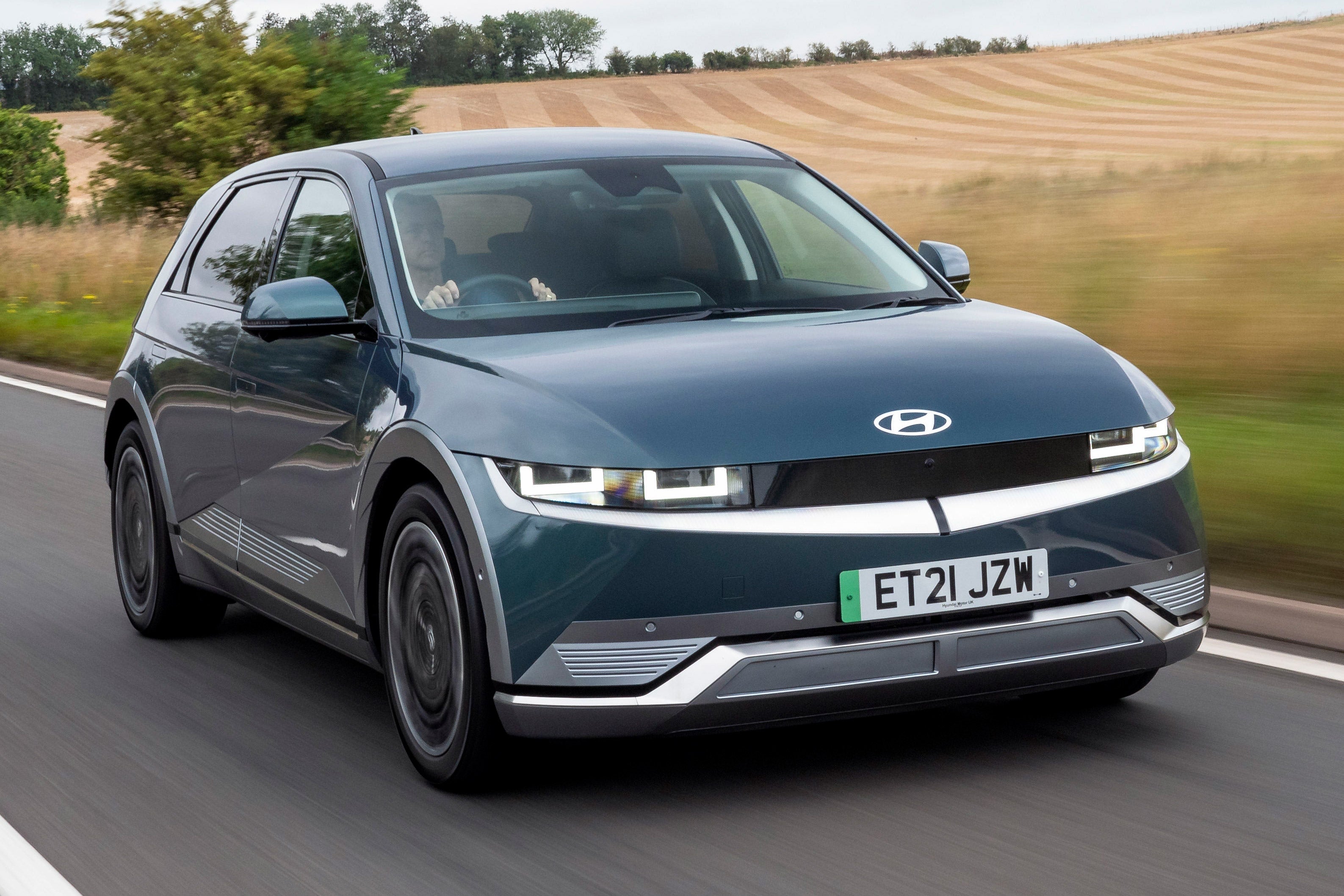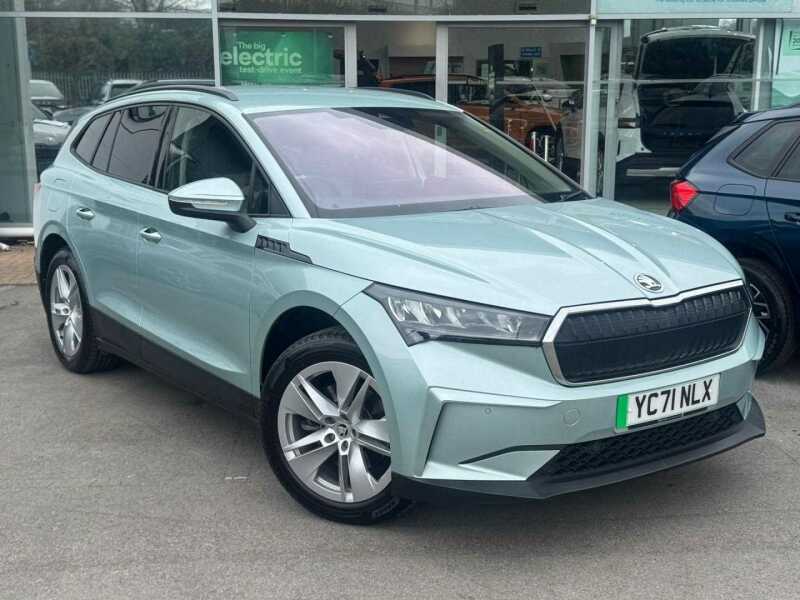
How much will electric car tax be in 2025?
Whether you already own an EV or are considering buying one, what you pay in car tax is often a key reason to run an electric car. At the moment, electric car owners pay nothing for car tax but that will change in 2025 when millions of EV drivers will be hit with a new tax. The change claimed to make the motoring tax system fairer comes from the 2023 Autumn Statement issued by Jeremy Hunt.
From 1 April 2025, all electric car owners must pay Band B VED, with the Band A rate of zero effectively removed. Under 2024-2025 car tax rates, that means an annual cost of £10 in the first year and £190 in subsequent years, although this is subject to change prior to 2025. The new electric car tax rate will apply to cars first registered on or after 1 April 2017, which means it will also be backdated to include millions of used EVs in the UK.
Another important consideration is that the £40,000 premium car tax exemption for EVs will also end in April 2025. This means electric car drivers who buy a new EV after April 1st 2025 with a list price of £40,000 (including options) or more will also pay the £410 premium car tax rate from the second year, for six years. Plush EV owners could pay up to £600, but once the car reaches its seventh birthday, it drops to the standard flat rate.
What else should I know?
Under the current rules, electric vehicles still benefit from the zero rate of car tax as well as the exemption from the £40,000 premium car tax, so if you own or are looking to buy a pure electric vehicle this is a significant bonus.
At the moment, all new cars that produce less than 50g/km of C02 are exempt from the first year of VED although rates are expected to be hit by inflation. Still, EV owners will pay a small amount of tax for the first year when compared to many ICE vehicles.
Likewise, owners of newly registered electric vans will pay a similar rate to petrol and diesel vans, which currently sits at £335 per year. Cars registered between 1 March 2001 and 30 March 2017 that emit less than 99g/km of C02 will pay VED for the first time will be liable for a rate of £20 per year.
Car Tax (VED) rates for electric cars registered from April 1st 2017
The below rates are for the 2024-2025 tax year
CO2 emissions
- 0g/km
First Year rate
- £10
Standard rate
- £190
First tax payment when an EV is new
This rate is based on a vehicle's CO2 emissions when it is first registered, and as pure electric vehicles have no tailpipe emissions that means they attract the zero rate under the current rules for 2024.
Cars registered from 1 April 2017 are subject to a first-year rate of £10, followed by the standard rate figure.
Electric cars registered between 2001 and 2017
Electric cars are a common sight in showrooms and on driveways today, but EVs have been around for many years now - Nissan's Leaf was first introduced in 2011.
Under the current VED rules, vehicles registered between 2001 and 2017 pay the zero rate if their emissions are below 99g/km - which means all pure electric vehicles remain VED-free currently. This will change in 2025 as EVs registered in this period will be subject to a rate of £20 per year.
Car Tax for electric cars registered between March 1st 2001 and March 31st 2017
The below rates are for the 2024-2025 tax year
Vehicle Excise Duty Band
- B (A for 2024)
CO2 emissions
- Up to 99g/km
Standard rate
- £20
Electric cars registered before 2001
Although electric cars have been around almost as long as petrol and diesel cars, before 2010, they were very much in the minority and not mass-produced. That means you will struggle to find a car from before 2001 with an electric powertrain.
However, the current boom in electric vehicles has also made EV conversions much more popular. Taking an older car, removing its petrol or diesel powertrain and installing battery packs and an electric motor has meant older cars getting a new lease of life.
The current VED rules for pre-2001 vehicles are purely based on engine size, but with an EV conversion, you can benefit from zero car tax until April 2025.
Will the Government introduce car tax for electric cars?
Yes, most electric cars in the UK will pay car tax VED from 1 April 2025.
The main reason for this is the Government’s 2030 ban on the sale of new petrol and diesel cars and its legal commitment to reach net zero carbon emission by 2050, which means that more and more motorists will be switching to electric cars - and as they switch there will be a decline in motoring tax revenues for the Treasury.
Should electric car owners pay car tax?
In 2021, we consulted more than 10,000 drivers on what a new car tax system should look like that would be ‘fairer for all'.
About a fifth (10%) were in favour of a pay-per-mile system of car charging being introduced.
More than a quarter (28%) said a flat-rate of vehicle tax should be introduced meaning petrol, diesel, EV and hybrid car owners would pay the same amount.
An increase in fuel duty was supported by 16%, while car tolls emerged as the least popular option - favoured by just eight per cent.
The Transport Select Committee has said that a new charging mechanism should be "revenue neutral with most motorists paying the same or less than they do currently”.
Electric cars provide lower fuel costs and free car tax VED and, sometimes, cheaper car insurance. However, free VED car tax will end on 1 April 2025.
Electric cars currently qualify for free car tax. You still need to obtain car tax when you buy an electric vehicle and renew it every 12 months but you will pay nothing for this process.
Free VED for electric cars will end in 2025 and they will be charged at the standard road tax rate, currently £190 for cars registered after 2017 or £20 for cars registered between 2001 and 2017.
From 1 April 2025, the Government will introduce vehicle excise duty (VED) to electric cars for the first time. The most will plug the £35 billion ‘fiscal black hole’ that is predicted if EVs are allowed to have free VED until 2030.
More electric and hybrid car guides
Whether you're looking for advice on what hybrid car to buy or looking to find your next EV, we've got the answer




